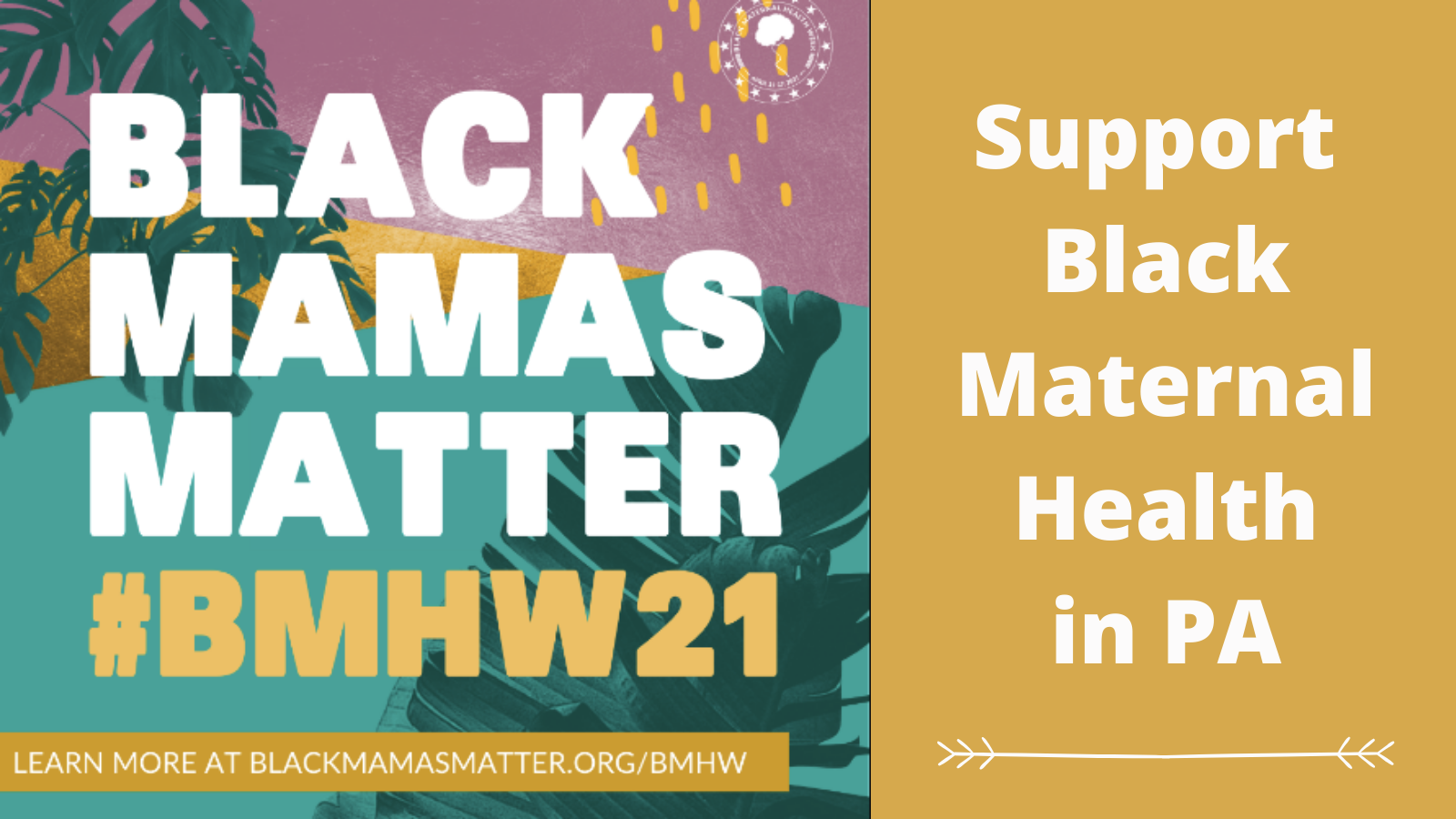
This week is Black Maternal Health Week #BMHW21!
Of course, maternal health means a lot more than preventing unnecessary injury and death in childbirth, but given the extreme disparities revealed in a new report and the fact that we know COVID-19 is exacerbating intersecting oppressions, we must demand that our policymakers address the factors contributing to these extreme disparities in maternal mortality.
The United States has a catastrophic maternal mortality crisis due to legacies of institutional racism and sexism. As the global Maternal Mortality Ratio (MMR) decreased 35% between 2000 and 2017, the United States’ MMR skyrocketed by 52% in the same period. As noted, maternal mortality data is severely stratified by race: Black and American Indian/Alaska Native women were about three times as likely to die from a pregnancy-related cause as white women.
The Centers for Disease Control and Prevention has identified access to care, misdiagnosis, and missed warning signs as major factors in maternal mortality—which brings us to Pennsylvania, where our legislative leaders continue to prioritize abortion restrictions that would increase maternal mortality while ignoring the crisis, even in the wake of a new state report that shows maternal mortality skyrocketed in Pennsylvania between 2013 and 2018.
Key findings of the report, which you can read here, include:
- A 21.4% increase in pregnancy-associated deaths between 2013 and 2018
- Stark racial disparities: Black people account for 23% of pregnancy-related deaths while accounting for only 14% of births during the same time period
- Nearly half of the women that experienced a pregnancy-associated death from 2013 – 2018 did not receive adequate prenatal care
- Accidental poisoning, which includes drug-related overdose deaths, accounted for 30% of pregnancy-associated deaths
According to the CDC, approximately three in five pregnancy-associated deaths are preventable.
To reduce preventable pregnancy-related deaths, researchers recommend policy solutions that address racial and ethnic inequities that contribute to disparities in pregnancy outcomes; increase early and adequate prenatal care; address the needs of women in the postpartum period, and address substance use and substance use disorders in reproductive-aged women.
In Pennsylvania, Rep. Morgan Cephas has been leading the charge of seeking evidence-based policies to address maternal mortality in the General Assembly.
The maternal mortality legislative package includes initiatives to extend Medicaid coverage for postpartum care, collect data on maternal morbidity (defined as severe unexpected complications during labor and delivery), enable more access to doula care, and address implicit bias in healthcare, among other efforts.
Support #BMHW21 & Listen to Black Voices
At 12:30 PM on Tuesday April 13, Vice President Kamala Harris is hosting a roundtable with Black Mamas Matter to address maternal health disparities. People will share their experiences with complications from pregnancy, childbirth, and postpartum as well as related advocacy and research.
Listen here: www.whitehouse.gov/live
For a full overview of all of this week’s advocacy opportunities, check out Black Mamas Matter Alliance.
Without your voice, the majority leadership of the Pennsylvania Legislature continues to obsess over abortion bans while ignoring maternal mortality. To support efforts to address maternal mortality in Pennsylvania, please contact your Pennsylvania House representative and urge them to sponsor and support bill in the maternal mortality legislative package.
Women’s Law Project is a public interest law center in Pennsylvania devoted to advancing and defending the rights of women, girls, and LGBTQ+ people in Pennsylvania and beyond.
April 2021: Our physical offices are still closed due to the pandemic but we are OPEN and working to serve your needs. Contact us here.
Sign up for WLP’s Action Alerts. Stay up to date by following us on twitter, Facebook, and Instagram. As a non-profit organization, we can not do this work without you. Please consider supporting our work.


